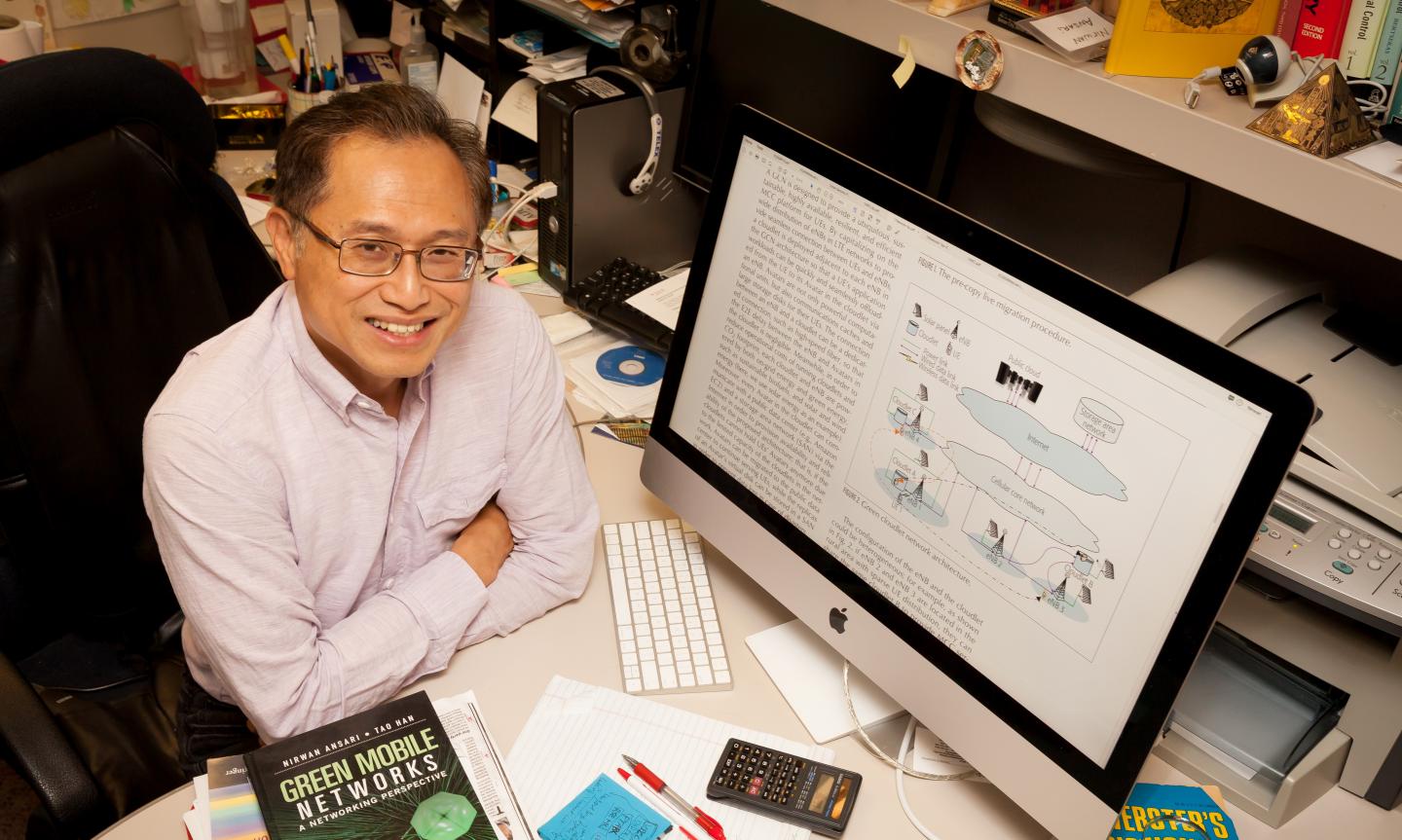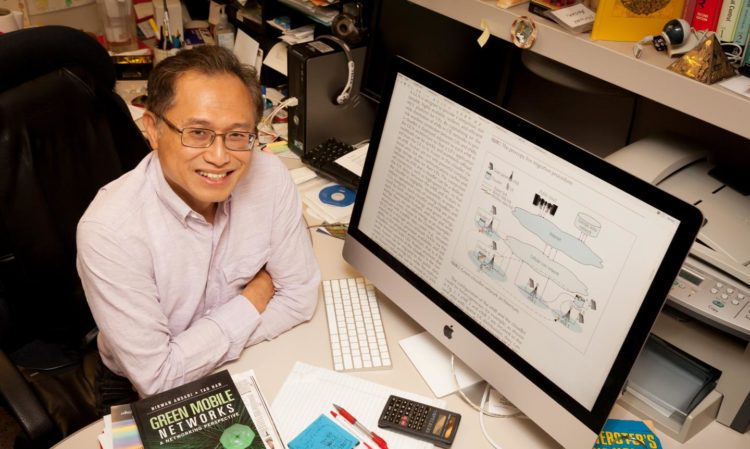
Credit: NJIT
Nirwan Ansari, a pioneer in the field of communications whose research on telecoms networks formed part of the backbone for broadband access and later FIOS networks, has been named a 2019 Fellow of the National Academy of Inventors (NAI).
Ansari, a distinguished professor of electrical and computer engineering at New Jersey Institute of Technology (NJIT), joins 168 new fellows from across the globe, described by the academy as “prolific academic innovators” who collectively hold more than 3,500 issued U.S. patents. They include six recipients of the U.S. National Medal of Technology & Innovation or U.S. National Medal of Science and four Nobel laureates.
One of his first patents on ATM (asynchronous transfer mode) networks, which relay voice, video and data from one location to another, helped fuel the rise of myriad bandwidth-intensive applications in online entertainment, gaming, banking, telemedicine, education, teleworking, to name a few areas.
More recently, he has become a noted expert in “green communications” in response to the surge in power-draining electronic communications and the growing amount of energy that is lost on the way to the user as it moves across the transmission and distribution lines of the grid. With his Greening At The Edges project, Ansari developed mechanisms to make the so-called “last mile” of the telecommunications system — the section of both optical and mobile networks that connects to consumers — more energy-efficient.
What links his research, beginning with his 1988 Ph.D. dissertation on programs that enable computers to recognize patterns and objects, is computational intelligence – methodologies inspired by nature for solving complex problems.
His research on image processing and computer vision laid the foundation for new discoveries and applications used in thousands of authentication applications such as anti-counterfeiting and fingerprinting. He first described, for example, reversible data hiding in images which can recover the original images without distortion from the marked images after the hidden data have been extracted.
His patented “Simultaneous Contrast and the Persistence of Vision CAPTCHA” relies on the human capacity to process rapidly displayed, discrete images as continuous animation. Moviegoers, for example, are able to read frames passing by at the rate of 24 per second as a coherent narrative because a visual imprint of the passing frame remains briefly in the brain, allowing it to segue seamlessly to the next. The technology also depends on the eye’s tendency to interpret colors differently if they are set against a contrasting background, adding an extra hurdle for computers.
“In our video-based CAPTCHA, if you capture one frame, it tells you nothing. If you combine the frames, together they still tell you nothing,” he explains. “We’re relying on a unique human ability to connect images. We display them against a contrasting color to make them even more difficult for bots to interpret. So it is easy for humans to pass the test by simply identifying the text of the short video, but difficult for machines to extract meaning from it.”
Over his career, Ansari has been granted 42 U.S. patents; his inventions have been licensed for use in technologies that trace and mitigate cyberattacks; improve the energy efficiency of 5G networks; manage resources and reduce energy usage in data center networks; and enhance intelligent control of power transmissions in smart grids. He is a Fellow of IEEE.
He has served on the editorial and advisory boards of several scientific publications, including as the associate editor-in-chief of IEEE Wireless Communications. In 1997, he co-authored the textbook Computational Intelligence for Optimization, with colleague Edwin Hou, a professor of electrical and computer engineering.
###
About New Jersey Institute of Technology:
One of only 32 polytechnic universities in the United States, New Jersey Institute of Technology (NJIT) prepares students to become leaders in the technology-dependent economy of the 21st century. NJIT’s multidisciplinary curriculum and computing-intensive approach to education provide technological proficiency, business acumen and leadership skills. NJIT is rated an “R1” research university by the Carnegie Classification®, which indicates the highest level of research activity. NJIT conducts approximately $170 million in research activity each year and has a $2.8 billion annual economic impact on the State of New Jersey. NJIT is ranked #1 nationally by Forbes for the upward economic mobility of its lowest-income students and is ranked 53rd out of more than 4,000 colleges and universities for the mid-career earnings of graduates, according to PayScale.com. NJIT also is ranked by U.S. News & World Report as one of the top 100 national universities.
Media Contact
Tanya Klein
[email protected]
973-596-3433
Original Source
https:/





